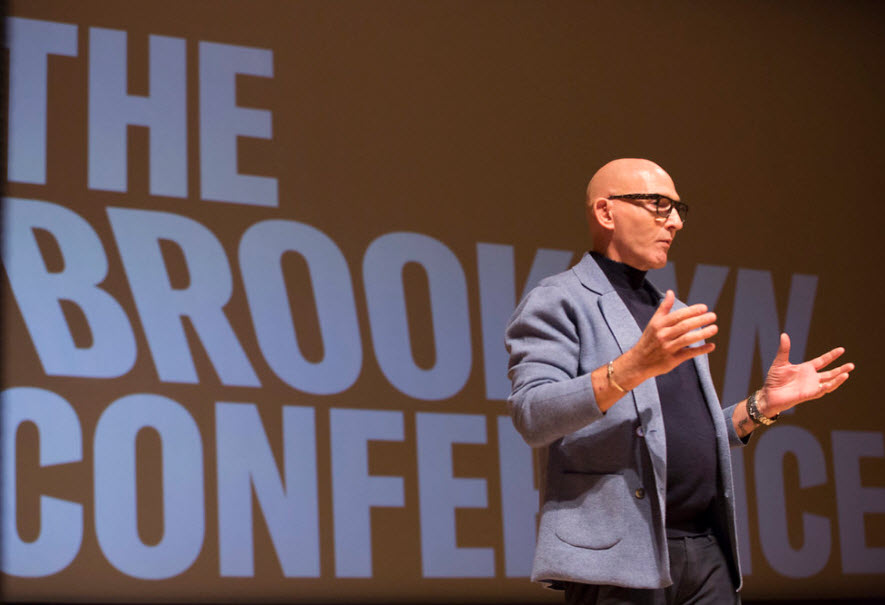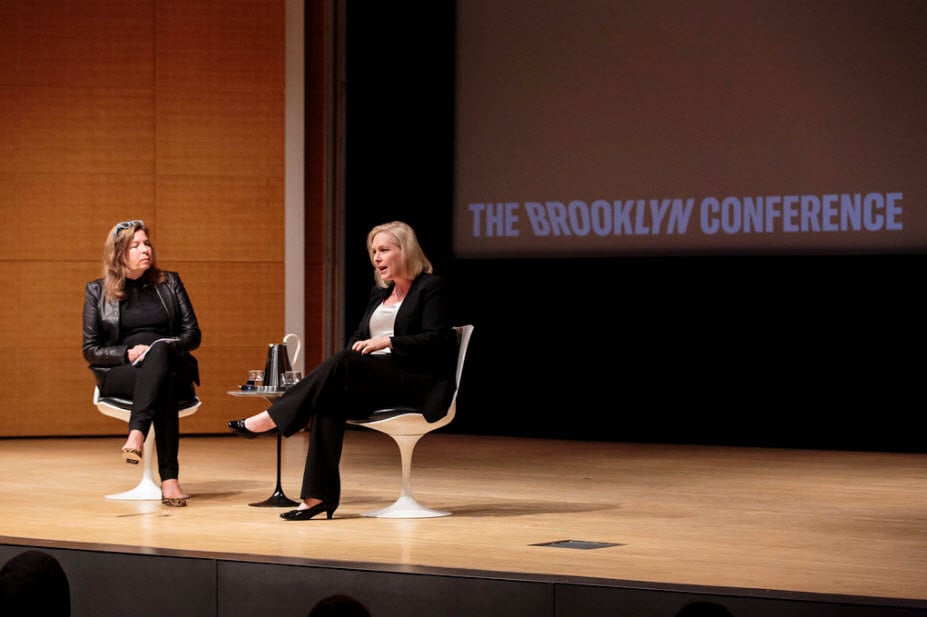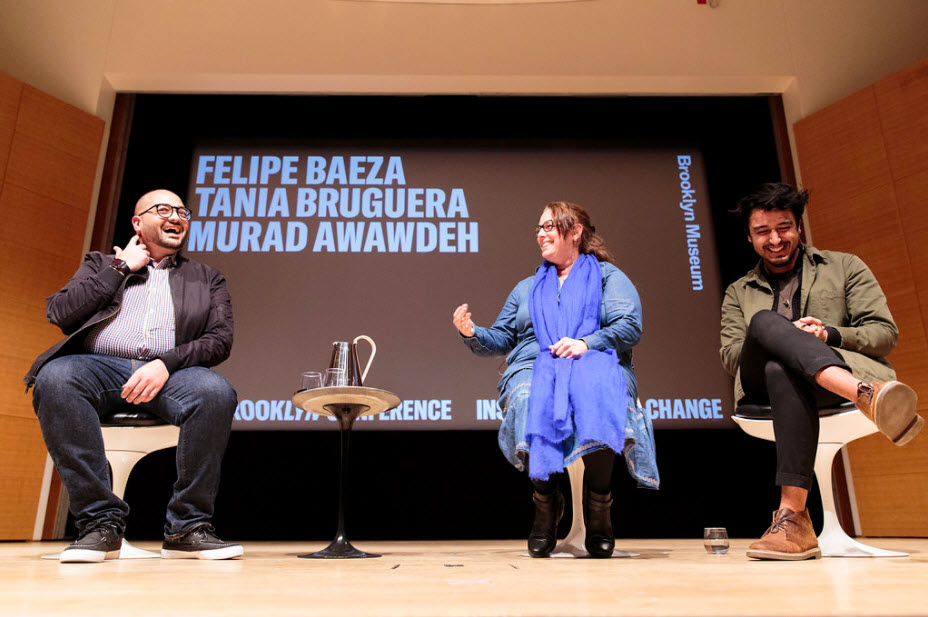Art World
The Merits of ‘Freedom Dreaming’ and Other Takeaways From the Brooklyn Museum’s First-Ever Conference on Art and Social Justice
The three-day conference included a full day of talks, panels, and workshops.

The three-day conference included a full day of talks, panels, and workshops.

Jazia Hammoudi

The first-annual Brooklyn Conference: Inspiring Social Change at the Brooklyn Museum brought together an impressive roster of artists, scholars, curators, and activists to address the intersections of art and social justice on Thursday. Initiated by the YES! Gala, the conference coincided with the opening of “Roots of the Dinner Party: History in the Making,” the latest exhibition in the Elizabeth A. Sackler Center’s yearlong “Reimagining Feminism” series. The three-day conference included a full day of talks, panels, workshops on topics ranging from community building to new models of accessibility. Here are five of the big ideas from across the conference’s programming.
During the opening of “Roots of The Dinner Party,” Brooklyn Museum Director Anne Pasternak sat down with artist Judy Chicago to discuss the history and making of her landmark work. Over the course of their conversation, which touched on art making as a process of discovery and the erasure of women’s voices from art history, Chicago repeatedly emphasized the importance of collaboration. Prompted by Pasternak’s praise, the artist insisted that “achievement doesn’t happen in a vacuum; it happens in the context of support…” Far-reaching change, she said, requires structures that offer that support and invite collaboration.

Senator Kristen Gillibrand speaks to Brooklyn Museum Director Anne Pasternak at the Brooklyn Conference on Thursday, October 19, 2017. Image courtesy of Brooklyn Museum.
For the first full day of programming, keynote speaker Senator Kirsten Gillibrand (D, New York) sat down with Anne Pasternak to discuss issues central to her platform. Invoking issues such as paid family leave, gun control, and the crisis in Puerto Rico, Gillibrand called on the public to get involved in their communities, on a local and national scale. Citing the tireless efforts of the Suffragettes to win women the right to vote in 1920, as well as the powerful intersectional moment of this year’s Women’s March, Gillibrand asserted that “the only time our democracy works is when people stand up and speak out.”
The notion of storytelling was repeatedly invoked over the course of the conference, as a means to mutual understanding across socio-political divides. Planned Parenthood’s chief brand and experience officer, Dawn Laguens, discussed the 101-year-old organization’s collaborations with artists across a variety of media—from spoken word to Virtual Reality—to instill empathy. The executive was speaking with Lindsay Taylor Wood, founder of the Helm, a studio devoted to creative strategies for girls and women.
During their conversation, Laguens championed visual storytelling as central to promoting Planned Parenthood’s message that “your body and your pleasure are your own.” By partnering with television shows like Jane the Virgin and art projects like Refinery 29’s “29 Rooms,” the organization approaches reproductive rights and the stigmas surrounding women’s sexuality through lived experience, prioritizing personal accounts that are obscured by divisive political discourse.

Felipe Baeza, Tania Bruguera, Murad Awandeh on a panel at the Brooklyn Conference on October 19, 2017. Image courtesy of Brooklyn Museum.
In a panel entitled “The Fight for Opportunity: Immigration Now,” Murad Awawdeh of the New York Immigration Coalition and artists Tania Bruguera and Felipe Baeza spoke about our current immigration crisis. Addressing the alarming increase in violence against immigrants and the current administration’s anti-immigrant policies, Bruguera challenged arts institutions to take concrete steps towards inclusivity. This means making real space for marginal voices on an institutional level, providing sanctuary for bodies under threat, and pushing back against “good immigrant, bad immigrant” narratives through programming.
Black Lives Matter co-founder Alicia Garza sat down with CNN political commentator Sally Kohn to discuss systematic racism, the Black Lives Matter movement, and hope. In a far-reaching discussion on the current political climate and the art of organizing, Garza brought up the importance of starting with the self. In order to participate in long-term social change and fight cynicism, Garza suggested spending 10 minutes a day “freedom dreaming”—taking a few minutes to imagine the future you hope for, and how it can be achieved.